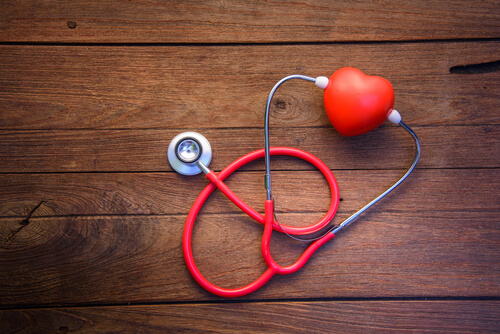A strong heart is important for optimal wellness. A healthy diet and exercise can help eliminate heart disease and reduce your risk of having a stroke or heart attack at any time of life. You can never be too early or too late to start caring for your heart. In fact, the earlier you start making healthy choices, the longer you will be able to reap the benefits.
You are familiar that regular exercise and a healthy diet can help keep your heart healthy. What more can you do to maintain your ticker ticking? Here are 10 crucial things at Live Enhanced that should do every day to ensure your heart performs as efficiently as possible. If you include these practices into your daily routine, your heart health will be at its finest.
10 Tips For Healthy Heart:

source: narayanahealth.org
Controlling heart disease (and all cardiovascular disorders) entails making wise decisions now that will pay off later in life. Lack of exercise, a bad diet, and other harmful habits can accumulate over time. Anyone of any age can benefit from taking modest efforts to keep their heart healthy throughout their lives.
Consume Healthy Fat
We imply fats in our diet, which include saturated, unsaturated, and polyunsaturated fats. One type of fat we don’t need is trans fat, which has been linked to an increased risk of developing cardiovascular disease or having a stroke over the term. This is due to the fact that trans fat blocks your arteries by increasing your bad cholesterol levels (LDL) while decreasing your good cholesterol levels (HDL). By eliminating them from your diet, you boost blood circulation throughout your body.
So, what exactly are trans fats? They are industrial fats that are commonly used to provide taste and texture to processed baked products, unhealthy snacks, kinds of margarine, and fried processed food.
Check labels on all foodstuffs. Trans fat is listed as partly hydrogenated oils on the nutritional information. Look for products that contain no trans fat. Make an effort to avoid trans-fat-containing meals.
Manage The Stress Level

source: everydayhealth.com
Stress management can help to reduce the risk of heart attack and stroke. High blood pressure is frequently related to high levels of stress. Chronic stress causes your body to produce excessive amounts of stress hormones, which are also unhealthy.
Everyone handles stress differently. Your reaction to it can have a direct impact on your health. There are inhaling exercises that can assist you in dealing with stress. Meditation has also been shown to be an excellent stress management technique. Exercise is another excellent technique to deal with it. Smoking, drinking alcohol, or allowing stress to interfere with sleep are all poor methods to deal with stress.
Good Amount Of Sleep
Sleep is an important aspect of maintaining heart health. If you don’t get enough sleep, you may be more likely to develop heart disease, depending on age or other healthy lifestyles. According to one research of 3,000 persons over the age of 45, those who slept fewer than six hours each night were twice as probable to have a heart attack or a stroke as those who slept six to eight hours per night.
Sleeping also allows your heart to recharge. When you sleep, your heart rate slows, your hormones balance, and you are not stressed. It’s healthy for the heart and overall health.
Look At Your Weight

source: hearstapps.com
Obesity or being overweight is unhealthy. The more weight you acquire, the higher your BMI (BMI). Relying on your height and weight, your BMI calculates your body fat percentage. The greater your BMI, the more likely you are to have high blood pressure, excessive cholesterol, and diabetes. Obesity also increases your chances of developing lung issues, digestive problems, liver damage, and possibly cancer.
Focus On What You Eat
Moderation is key to eating healthily over time. Fruits, vegetables, healthy grains, nuts, and lean proteins should make up the majority of your diet. You’ll be able to splurge on occasion if you consume this way most of the time.
It’s vital to permit yourself to eat something you want now and then. So don’t feel bad about indulging yourself as a reward for eating healthily. Just make sure you aren’t overindulging yourself. Keep color in mind as you select your vegetables. A vibrant dish with plenty of orange, red, yellow, and dark-green veggies ensures that you get enough vitamins and minerals.
No Smoking

source: unitedconcordia.com
There’s nothing new to report here. Smoking use is harmful to one’s health. It is carcinogenic. It harms your lungs. It’s also bad for your heart. Cigarette smoking raises your risk of heart disease. Several studies have found that smoking cigarettes are the biggest reason for cardiovascular disease, which causes heart attacks.
Say No To Alcohol
Alcohol can disrupt your heart by generating high blood pressure, irregular heart rhythms, and cardiac muscle damage. But you don’t have to abandon it entirely. Simply follow the current standards for moderate alcohol consumption, which are two to three units per day for women and three to four units per day for men.
Check Cholesterol Levels
Everyone over the age of 18 should be aware of their blood pressure and cholesterol levels. Starting at the age of 18, you ought to have your blood pressure monitored every 3 to 5 years. Checking is the best method to find out for sure.
Stay Active

source: everydayhealth.com
You don’t have to join a gym or buy expensive equipment to work out. The key is to simply get up and move. Take a walk. At work, climb the stairs. Perform a few push-ups or sit-ups. Twirl. Adults should engage in at least 2 hours and 30 minutes of moderate cardiovascular exercise each week, according to experts. Every day, children should engage in at least one hour of physical activity.
Aerobic exercise directly affects your heart. Exercise strengthens your heart, which is a muscle. A powerful heart can pump blood more efficiently, delivering oxygen and nutrients to other regions of your body, which prevents cardiac stroke.
Don’t Overlook Gums
It is unclear whether gum disease promotes heart disease or back. Some doctors believe that the bacteria that cause gum disease move throughout the body from the mouth. They exacerbate inflammation as they spread. This elevated inflammation has the potential to cause or aggravate inflammatory disorders such as heart disease. Gum disease prevention can benefit your overall health.
Don’t Forget Daily Check-Up!
There is a reason for annual physicals. Your doctor can monitor your blood pressure and check for signs of heart disease. It is very important to be aware of your blood pressure. There are no distinct indications of high blood pressure, but it can progress to heart disease if it is not treated. If both you and your doctor keep an eye on your blood pressure, you can take action to lower it if it begins to rise.




